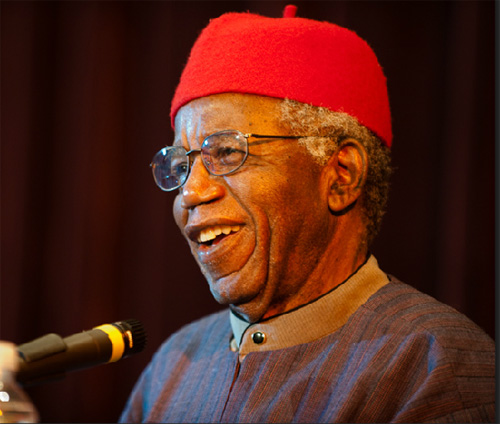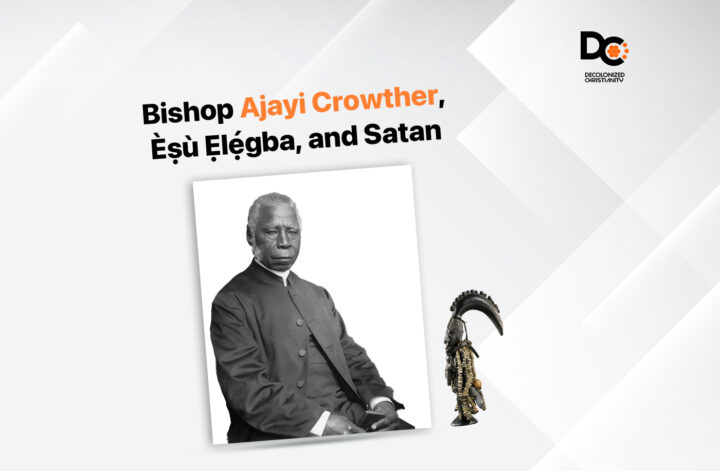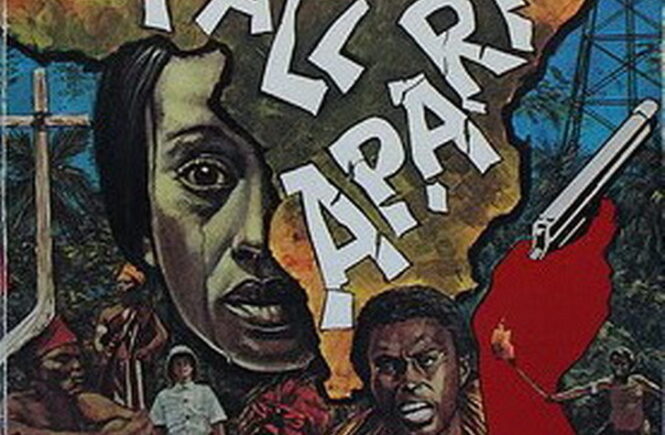While there are a significant number of people who do not feel positive about the deeds of the white man, none suggests violence. The thoughtful Obierika thinks such an act will not be wise: “It is already too late. . . . Our own men and our sons have joined the ranks of the stranger. They have joined his religion and they help to uphold his government” (124). Being his typical self, Okonkwo calls for immediate war to cleanse the land. He boasts of how Umuofia is immeasurably greater than the clan that the white man has wiped out: “We would be cowards to compare ourselves with the men of Abame.
Their fathers had never dared to stand before our ancestors. We must fight these men and drive them from the land” (124). When he cannot convince the people to go to war, “he [mourns] for the warlike men of Umuofia . . . who [have] so unaccountably become soft like women” (129). Of course, Okonkwo remains a man; he could not be agbala—and he proves that when the opportunity presents itself. Being already “choked with hate,” (138) Okonkwo is now “trembling with hate” at the sight of some messengers who have come to stop the meeting of the elders of Umuofia. When he cannot withstand it all any longer, “In a flash Okonkwo drew his matchet. The messenger crouched to avoid the blow. It was useless. Okonkwo’s matchet descended twice and the man’s head lay beside his uniformed body” (144). Realizing that even this typically “manly” act would not spur Umuofia to action, Okonkwo concludes that his people have indeed become agbala; it is hopeless. Thus, “[he] wiped his matchet on the sand and went away” (145) to end it all. Begam captures the symbolism of that act when he writes that “the people of Umuofia have deserted Okonkwo and in the process betrayed themselves, but the wiping of the machete is the only eloquence he permits himself.” Okonkwo “symbolically dissolves his connection with his people,” continues Begam, “wiping away the blood bond that has joined them” (400). Begam adds: “In taking his own life, Okonkwo has simply preceded his people in their communal destruction” (401). Hence, Okonkwo’s extreme and violent response to the morass of colonial rule precipitates the dissolution of his society.
As flawed as he is, Okonkwo remains a hero—“we must recognize that Okonkwo’s faults are essentially virtues carried to an extreme and that while he is obviously not perfect, he nevertheless represents some of the best qualities of his culture,” (400) warns Begam. Indeed, Achebe’s portrayal of his hero as an imperfect person amazes critics who know about the author’s intention of rewriting the history of Africa. For some critics, this is one strength of the novel that has made it suitable as a critique of Enlightenment in first-year level anthropology and philosophy classes around the world. Commenting on Achebe’s way of ending the novel, especially the last paragraph, Kunreuther (72) writes:
Ending this way, Achebe draws attention to his own writing and how it may be different than the Commissioner’s prospective book. In doing so, he invokes the position of the reader. Readers are called upon to critically reflect upon what they have just read, to interrogate the novel in relation to this other prospective book, and to read the novel not as a typical tale of Igbo society but, rather, as an engagement with the complexities of diverse psychological characters and the subtle transformation in daily life and cultural beliefs and values before and during the beginning days of colonial contact.
Achebe is, in essence, saying to the readers, in the words of Uchendu to Okonkwo, “I have no more to say to you” (95).
Works Cited in the Series
Achebe, Chinua. Things Fall Apart. Exp. ed. with notes. Oxford: Heinemann, 1996. Print. African Writers Series. Classics in Context.
Begam, Richard. “Achebe’s Sense of an Ending: History and Tragedy in Things Fall Apart.” Studies in the Novel 29.3 (1997): 396 – 411. MLA International Bibliography. Web. 17 Oct. 2012.
Chanda, Ipshita. “Hawk and Eagle: Cultural Encounters and the Philosophy of ‘Understanding’ in Achebe’s Narratives.” Philosophia Africana 9.2 (2006):101 – 16. MLA International Bibliography. Web. 17 Oct. 2012.
Gikandi, Simon. “Chinua Achebe and the Invention of African Literature.” Things Fall Apart. By Chinua Achebe. Exp. ed. with notes. Oxford: Heinemann, 1996. ix –xvii. Print. African Writers Series. Classics in Context.
Ikuenobe, Polycarp. “The Idea of Personhood in Chinua Achebe’s Things Fall Apart.” Philosophia Africana 9.2 (2006): 117 – 31. MLA International Bibliography. Web. 22 Oct. 2012.
Kunreuther, Laura. “‘Pacification of the Primitive’: The Problem of Colonial Violence.” Philosophia Africana 9.2 (2006): 67-82. MLA International Bibliography. Web. 17 Oct. 2012.
Ohadike, Don C. “Igbo Culture and History.” Things Fall Apart. By Chinua Achebe. Exp. ed. with notes. Oxford: Heinemann, 1996. xix-xlix. Print. African Writers Series. Classics in Context.
Snyder, Carey. “The Possibilities and Pitfalls of Ethnographic Readings: Narrative Complexity in Things Fall Apart.” College Literature 35.2 (2008): 154 – 74. MLA International Bibliography. Web. 17 Oct. 2012.




